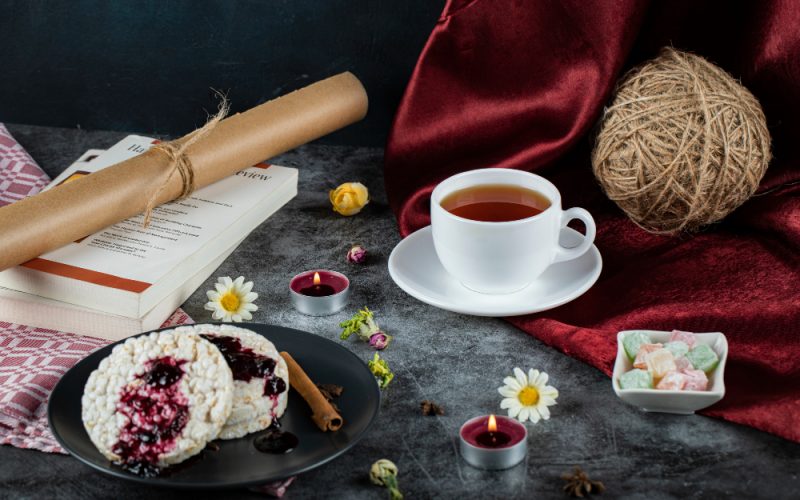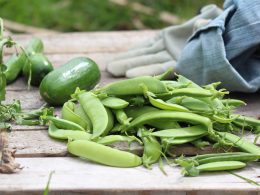Introduction
In today’s fast-paced world, many women are rediscovering the importance of inner balance, mindfulness, and sacred self-care. Meditation and feminine rituals have become more than just wellness trends—they are deeply restorative practices rooted in ancient traditions. One of the most powerful yet often overlooked tools in these practices is tea. The soothing act of steeping and sipping herbal blends can elevate spiritual practices, calm the nervous system, and deepen one’s connection to the self. Whether used in moon rituals, womb healing, or simple daily reflection, tea fosters an atmosphere of intentional tranquility.
Beyond its comforting warmth and flavorful complexity, tea—especially herbal and adaptogenic varieties provides physiological and energetic support. When thoughtfully chosen and consumed with purpose, teas can support hormone balance, emotional clarity, and intuitive awareness. Integrating goddess teas, thoughtfully formulated with herbs meant to nourish the feminine body and spirit, into meditation and ritual practices can significantly enhance their impact.
Key Points
- Teas support meditation: Herbal blends promote relaxation and present-moment awareness.
- Enhancing feminine rituals: Certain herbs are traditionally used in womb care, lunar ceremonies, and emotional healing.
- Mind-body connection: Tea rituals increase mindfulness and embodiment in spiritual practices.
- Customizing your tea: Choosing the right herbal ingredients is crucial for aligning tea with your spiritual goals.
The Intersection of Tea, Meditation, and Feminine Energy
For centuries, women have used herbs in sacred ceremonies, healing rituals, and daily self-care. The act of brewing tea is inherently meditative: it invites stillness, engages the senses, and encourages presence. When paired with feminine spiritual practices—like meditation, intention setting, or cyclical living—tea becomes more than a beverage; it becomes a bridge between the physical and the spiritual.
Rather than rushing through a cup of caffeine in the morning, many women are now reclaiming the tea ceremony as a slow, intentional practice. These rituals, often passed down through cultures and generations, help us align with our natural cycles and connect deeply with our intuition.
Why Tea is Ideal for Meditation
Tea prepares the mind and body for stillness. Herbal teas such as chamomile, tulsi, lavender, and lemon balm contain compounds that relax the nervous system without sedating the mind. This creates an ideal internal environment for meditation:
- Reduced Stress: Herbs like ashwagandha and holy basil modulate cortisol levels, promoting calm focus.
- Enhanced Focus: Adaptogens and nootropic herbs improve mental clarity without overstimulation.
- Sensory Engagement: The aroma, warmth, and flavor of tea help anchor awareness in the present moment.
Teas as Anchors in Feminine Rituals
Feminine rituals often focus on cyclical wisdom, embodiment, and emotional healing. Whether it’s a new moon intention-setting ceremony, a womb healing meditation, or a sacred journaling session, tea can serve as a gentle guide into these practices.
Herbs like red raspberry leaf, rose, hibiscus, mugwort, and motherwort have long been used in women’s rituals for their ability to support the reproductive system, heart chakra, and intuitive insight. Preparing tea with intention and consuming it during these rituals helps create a sacred container for reflection and transformation.
Herbal Allies for Meditation and Ritual
Choosing the right herbs is essential to amplifying the benefits of tea in your spiritual routine. The following list explores common herbs used in meditative and feminine practices, along with their energetic and physiological benefits:
1. Chamomile
- Benefits: Calms the nervous system, aids digestion, promotes sleep
- Ritual Use: Ideal for ending the day with peaceful meditation or dream work
2. Rose
- Benefits: Opens the heart, supports emotional healing, regulates mood swings
- Ritual Use: Common in self-love rituals and heart-opening meditations
3. Mugwort
- Benefits: Enhances lucid dreaming, connects to intuition, stimulates the third eye
- Ritual Use: Used in moon ceremonies, dream journaling, and divination
4. Tulsi (Holy Basil)
- Benefits: Adaptogen, balances cortisol, supports clarity and spiritual focus
- Ritual Use: Perfect before long meditation sessions or energy clearing ceremonies
5. Red Raspberry Leaf
- Benefits: Tones the uterus, supports hormonal balance
- Ritual Use: Popular in womb healing practices and honoring the menstrual cycle
Creating a Tea Ritual: Steps and Suggestions
Whether you’re new to meditation or an experienced practitioner, weaving tea into your practice can enhance your connection to yourself and the sacred. Here’s how to create your own tea ritual:
1. Set Your Intention
Before preparing tea, take a moment to set an intention. What do you wish to call in—peace, clarity, connection, healing?
2. Select the Herbs Thoughtfully
Choose herbs that align with your physical needs and spiritual goals. If you’re working with the heart chakra, rose and hawthorn may be appropriate. For grounding, try nettle or dandelion root.
3. Prepare with Presence
As you boil water, blend herbs, and steep the tea, remain mindful. Focus on the sounds, smells, and visual beauty of the process. This is a meditation in itself.
4. Sip Slowly in Silence
Bring your tea to your meditation space. Begin your practice by taking slow, intentional sips. Let the tea anchor your awareness to the body and the breath.
5. Close with Gratitude
After your ritual or meditation, offer thanks—to the herbs, the earth, and yourself. This seals the energetic container and grounds the experience in appreciation.
Working with Lunar Cycles and Tea
Many feminine rituals are structured around the phases of the moon. Each lunar phase represents a different energetic quality, and specific teas can complement these shifts:
- New Moon: Introspection and intention-setting. Recommended herbs: mugwort, lavender, lemon balm.
- Waxing Moon: Building energy and focus. Recommended herbs: nettle, tulsi, peppermint.
- Full Moon: Illumination and celebration. Recommended herbs: rose, hibiscus, jasmine.
- Waning Moon: Release and reflection. Recommended herbs: dandelion root, burdock, chamomile.
Goddess Archetypes and Herbal Energies
Many women connect with goddess archetypes during ritual work—figures like Isis, Kali, or Aphrodite. Each archetype represents different aspects of the feminine psyche, and corresponding herbs can be used to embody their qualities:
- Aphrodite (Love, Passion): Rose, damiana, cinnamon
- Hecate (Wisdom, Shadow Work): Mugwort, vervain, elderberry
- Kuan Yin (Compassion, Healing): Chamomile, tulsi, lavender
Using goddess teas inspired by these archetypes, one can amplify connection to divine feminine energies during ritual and meditation.
Integrating Tea Into Daily Spiritual Practices
Not every ritual needs to be elaborate. Simple daily acts, when done with intention, can be deeply spiritual. Here are a few accessible ways to incorporate tea into your everyday practice:
- Meditate with herbal tea each morning instead of coffee
- Use tea as a journaling companion during shadow work
- Sip a calming blend during your nightly skincare or bath ritual
- Create a tea altar with crystals, candles, and affirmations
Frequently Asked Questions
Q1. What kind of tea is best for meditation?
Herbal teas like chamomile, tulsi, lemon balm, and lavender are excellent for calming the mind and preparing the body for meditation. Choose caffeine-free blends to avoid overstimulation.
Q2. Can tea really enhance spiritual practices?
Yes, tea engages the senses and helps ground you in the present moment. Combined with herbs that support emotional and energetic balance, tea becomes a powerful tool in spiritual rituals.
Q3. How do I choose the right herbs for my ritual?
Start by identifying your intention. Are you focusing on heart healing, intuition, or grounding? Match herbs to those energetic goals, and consider consulting traditional herbal wisdom or reputable sources.
Q4. Is it safe to drink herbal tea daily?
Most commonly used herbs are safe for daily consumption in moderate amounts. However, if you are pregnant, nursing, or taking medication, consult a healthcare provider before beginning regular herbal use.
Q5. Can I blend my own teas?
Absolutely! Blending your own teas can be a deeply empowering experience. Start with a base (like chamomile or rooibos) and add herbs aligned with your intention. Always research herb interactions and dosages.
Q6. What makes goddess teas different from regular herbal teas?
Goddess teas are intentionally formulated to align with feminine energies and spiritual practices. They often use herbs traditionally associated with womb health, intuition, and emotional balance, making them especially supportive in meditative and ritual contexts.












